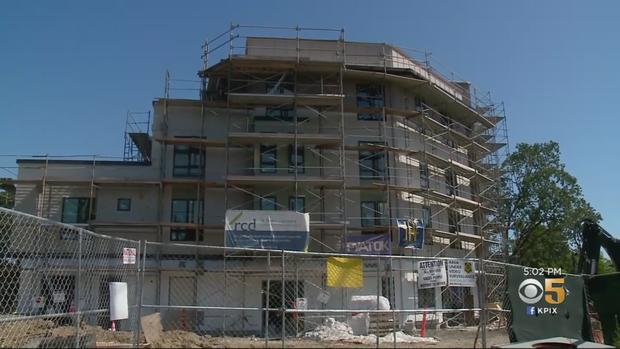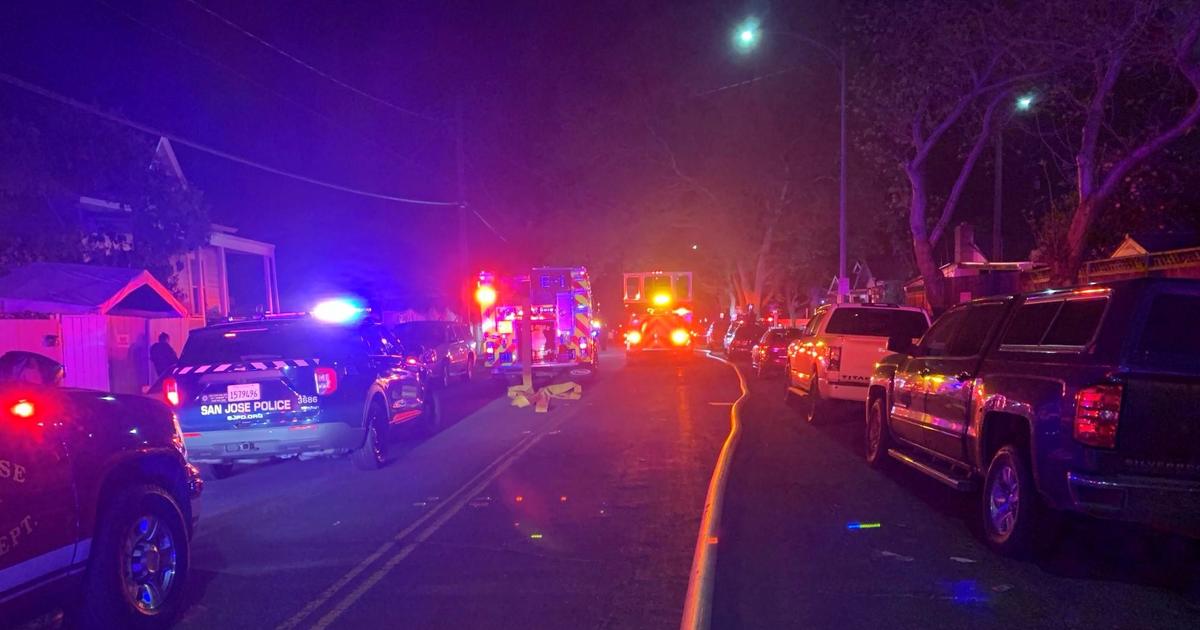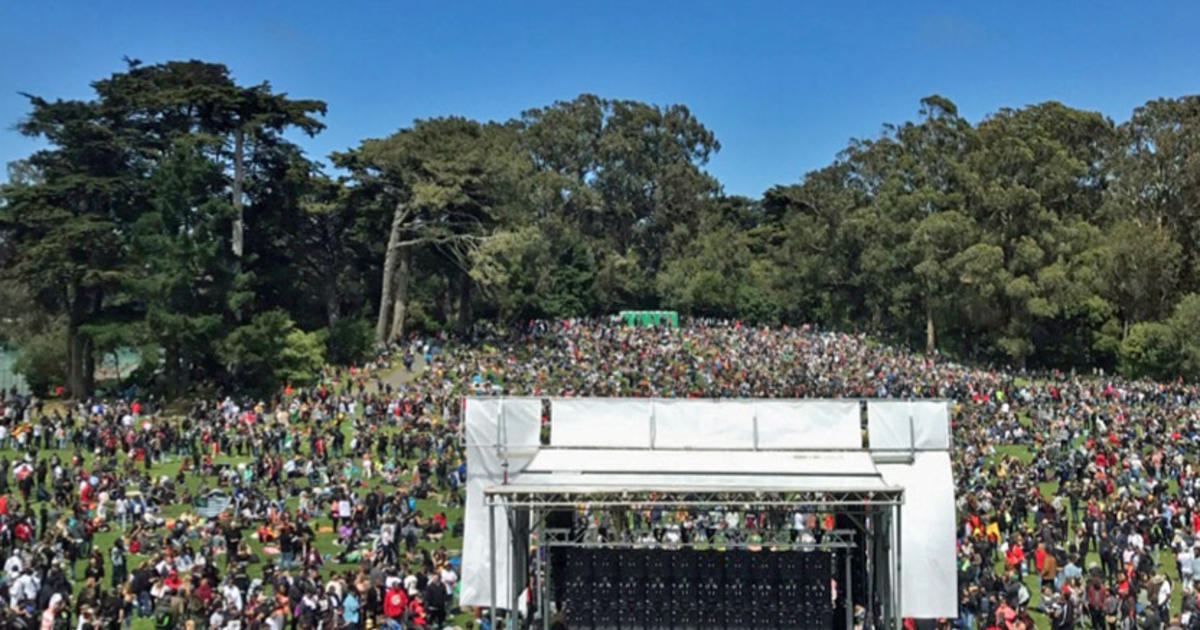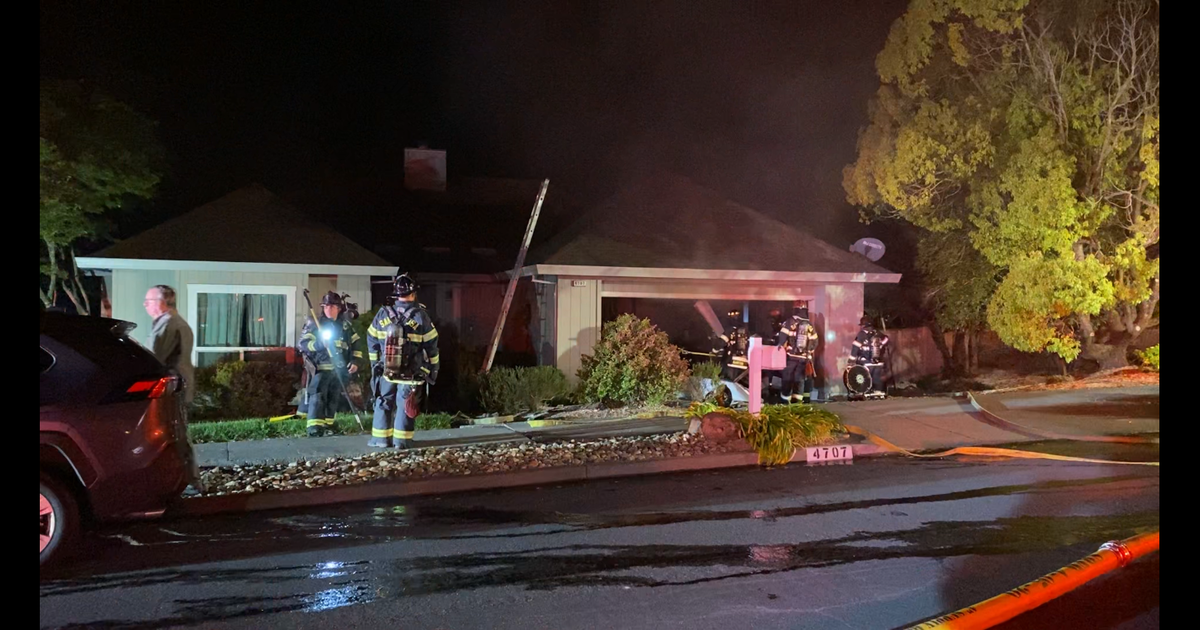Bay Area Churches Gift Surplus Land To Use For Affordable Housing, Homeless Services
WALNUT CREEK (KPIX 5) -- The problems of homelessness and gentrification seem to be getting worse every day. But now, Bay Area churches are stepping up to offer a down-to-earth solution to the housing crisis.
It's been more than six years since St. Paul's Episcopal Church in Walnut Creek began providing food and support for the homeless in the area. Donna Colombo, Executive Director of the church's Trinity Center, says even back then, they knew more was needed.
"We started looking for housing for people and found out there wasn't any," Colombo said, "and so that's how this project began."
The project is called St. Paul's Commons. Sitting right next to the church, the four story building will house homeless services on the bottom floor and, up above, 44 studio and one-bedroom apartments for low income, single adults and couples.
RCD, a nonprofit developer specializing in affordable housing, will handle construction and management of the complex. But the true godsend is the land the church is offering.
"Walnut Creek doesn't have a lot of space, right?" said Colombo. "Well, the churches have a lot of good space…and big parking lots." She says that's because most churches bought into the area so long ago. "Yeah, I mean, St. Paul's has been here over a hundred years," she said.
St. Paul's Rector, Rev. Krista Fregoso, says she's excited that a mid-sized church in Walnut Creek could create such a gift to the larger Bay Area.
"We really hoped this would be a model moving forward, that other faith communities can take what we've done and replicate it in their own community," she said.
And that is exactly what's happening. Churches in Santa Rosa, East Palo Alto, Berkeley, San Jose and Oakland are all working to build affordable housing on their surplus properties. It's exactly what government says is needed, but whose regulations often discourage private developers from even trying.
"I think the difference is…we are a community of faith," said Colombo. "We do have the faith that this will happen. It might be hard, but that doesn't mean we shouldn't do it."
It is a huge leap of faith--to think that you can change the world by building 44 homes when the problem is so much bigger than that. But to the doubters, Colombo says, "It will change the world for 44 to 90 people. And, if we keep doing more 44 units and more 44 units and more 44 units, it will spark something, perhaps. So, yes, it will change the world, I believe."
In all, the project will cost about $23 million, with most of that coming from state and local grants and tax credits and private loans secured by the developer. If all goes well, construction could be finished by October with the first tenants moving in sometime in November.




